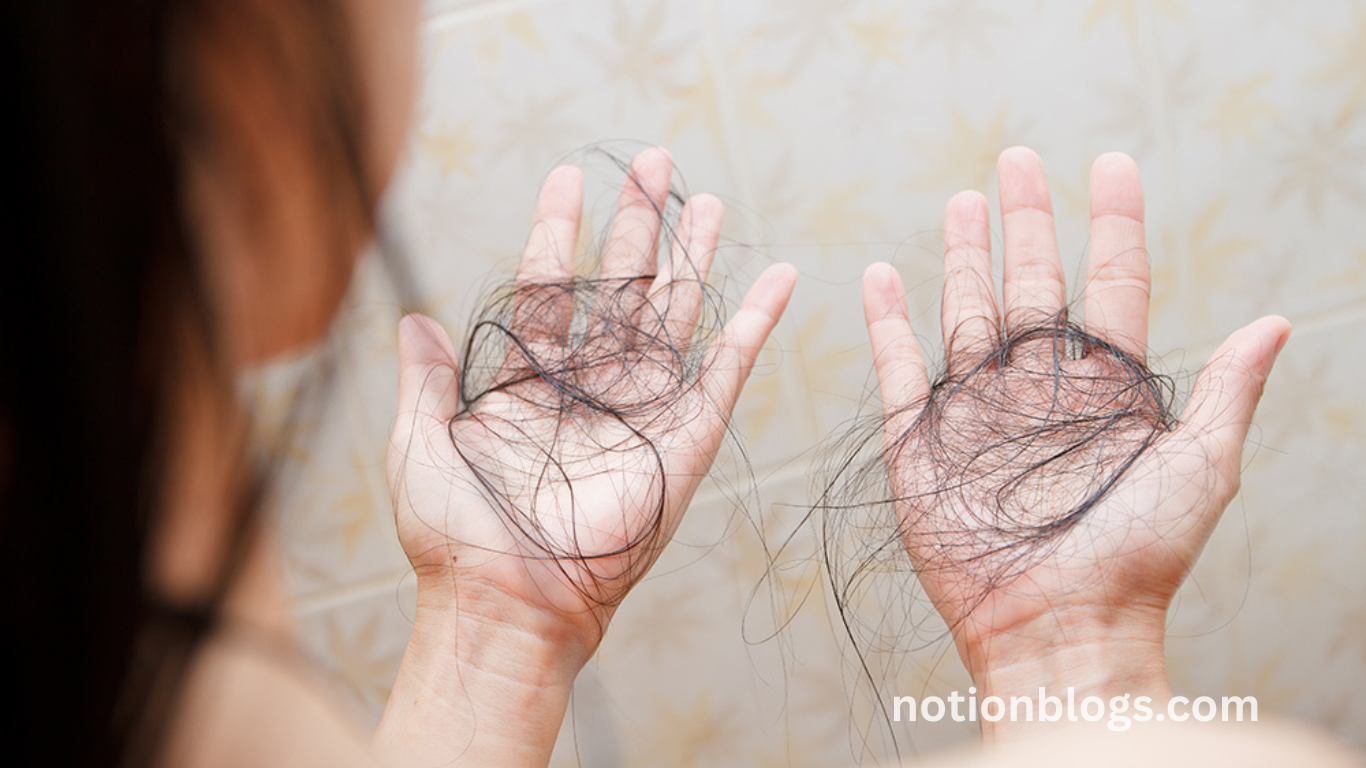Hair loss affects millions of men and women worldwide, leading many to explore over-the-counter and prescription topical treatments. These products often promise effective results without invasive procedures or long-term commitments, making them a popular solution. However, recent alerts from the U.S. Food and Drug Administration (FDA) suggest that the side effects of these treatments may be more serious than previously thought.
The FDA has issued warnings linking specific topical hair loss treatments to unexpected adverse effects, including erectile dysfunction (ED), anxiety, depression, and even brain fog. While the efficacy of these treatments continues to be studied, the newly reported psychological and neurological side effects have raised concerns among consumers and healthcare professionals alike. This article explores the latest findings, the science behind these risks, and what you should consider before using topical hair regrowth products.
FDA Highlights New Risks in Popular Topical Hair Loss Medications
The FDA’s recent warning focuses primarily on topical formulations containing finasteride or minoxidil. While these ingredients are generally considered safe in oral forms under medical supervision, the topical versions are being reevaluated due to a surge in adverse event reports. The FDA has compiled consumer feedback and clinical data showing a consistent link between the use of these products and the onset of symptoms like ED and cognitive dysfunction.
The issue appears to stem from systemic absorption—despite being topically applied; these drugs may still enter the bloodstream in significant amounts. This systemic impact could explain the broader range of side effects. As a result, the FDA is encouraging further research and urging manufacturers to update warning labels, giving consumers more precise information about potential neurological and sexual side effects.
How Topical Treatments May Affect the Nervous and Hormonal Systems
Topical hair loss treatments work by influencing hormonal or blood flow mechanisms in the scalp. However, when active ingredients penetrate the skin, they can affect hormonal balance throughout the body. For example, finasteride works by inhibiting 5-alpha-reductase, an enzyme that converts testosterone to DHT. While this helps reduce hair loss, it may also lower libido, affect mood, and interfere with cognitive clarity.
Some users report experiencing symptoms within weeks of use, including confusion, fatigue, and emotional instability. These symptoms often resolve after discontinuation but, in rare cases, persist for more extended periods. Experts believe that individual sensitivity and metabolic differences play a role in how these side effects manifest. Understanding these interactions is key to making informed decisions about hair loss treatments.
The Psychological Toll of Unwanted Side Effects
For many users, the promise of regaining lost hair quickly turns into a psychological burden when unexpected symptoms appear. Sexual dysfunction, in particular, can lead to depression, anxiety, and relationship stress. Brain fog and memory issues can impact professional life, reduce productivity, and affect self-confidence. These psychological impacts can sometimes outweigh the benefits of hair regrowth.
Read More : Study Ties 8 + Weekly Alcoholic Drinks to Greater Risk of Brain Damage
Mental health professionals are now advocating for better patient education around these treatments. If patients are aware of the potential for anxiety or depression, they can monitor symptoms more closely and seek help early. Informed consent is crucial, and doctors are advised to conduct a complete medical history check before recommending any form of topical DHT blockers or hormone-altering drugs.
Consumer Reports and Case Studies Shed Light on Real-World Impact
Real-world experiences are now playing a significant role in shaping the narrative around topical hair loss medications. Consumer forums and case studies submitted to medical journals reveal troubling patterns. Men in their twenties and thirties have reported long-term ED and decreased cognitive function after using these products. Women have also reported mood swings, hormonal imbalances, and irregular menstrual cycles.
These firsthand accounts, while not always scientifically validated, have prompted several universities and clinical bodies to launch independent studies. The mounting anecdotal evidence is pushing regulatory agencies to take these concerns more seriously. Transparency between users and healthcare providers will be essential in identifying which populations are most at risk.
Why Some Users Are More Vulnerable Than Others
Genetics, skin sensitivity, hormone levels, and existing health conditions can all influence how a person reacts to topical treatments. Those with hormonal imbalances, mental health disorders, or skin permeability issues may be more likely to absorb and respond to the active ingredients. Additionally, people using other medications that affect testosterone or estrogen levels may experience compounded effects.
Understanding your risk factors is key. A consultation with a dermatologist or endocrinologist can help determine whether a topical treatment is appropriate. Personalized medicine—considering each individual’s unique biology—is now more critical than ever in preventing adverse outcomes from seemingly benign therapies.
Safer Alternatives and Non-Pharmaceutical Approaches to Hair Loss
Given the growing concerns, many consumers are turning to alternative methods for managing hair loss. Natural oils like rosemary or peppermint oil, platelet-rich plasma (PRP) treatments, low-level laser therapy, and microneedling are gaining popularity. These methods do not interfere with hormones and typically carry fewer side effects.
Nutrition and lifestyle also play a crucial role in maintaining healthy hair. Deficiencies in vitamins like biotin, iron, and vitamin D have been linked to hair thinning. Regular scalp massages, stress management, and a balanced diet can support hair health without pharmaceutical risks. While results may take longer, these approaches offer a safer long-term strategy.
Regulatory Response and Industry Accountability
The FDA’s warning has prompted action within the pharmaceutical and cosmetic industries. Some brands are revising product labels to better reflect potential side effects. Others are investing in reformulations that aim to minimize systemic absorption. There is also increasing pressure on companies to be transparent in their marketing, avoiding exaggerated claims about safety or effectiveness.
Consumers are advised to check for FDA compliance and read ingredient lists thoroughly. Products that do not disclose concentrations or fail to provide clinical backing should be approached with caution. With increased scrutiny, safer and more honest hair loss solutions are hoped to become the norm.
What to Do If You Experience Side Effects
If you’re currently using a topical hair loss product and begin experiencing symptoms like ED, anxiety, or memory issues, stop using the product and consult a healthcare provider immediately. It’s essential to document your symptoms and the product you used, including its concentration and usage frequency. Reporting adverse effects to the FDA’s MedWatch program can help improve public health outcomes.
Doctors may recommend blood tests or neurological evaluations to assess the impact of the treatment. In many cases, discontinuation leads to symptom improvement, but ongoing support from healthcare professionals may be needed. Mental health support is also advised if anxiety or depression persists beyond product discontinuation.
Frequently Asked Questions
What is the FDA warning about topical hair loss treatments?
The FDA warns that some topical treatments, especially those with finasteride or minoxidil, may lead to ED, brain fog, and anxiety due to systemic absorption.
Are all topical hair loss treatments dangerous?
Not all treatments pose risks, but those affecting hormonal pathways should be used cautiously. Natural or non-hormonal alternatives may be safer options.
How common are these side effects?
While rare, reports of side effects like ED and brain fog are increasing. The actual prevalence may be higher due to underreporting or misdiagnosis.
Can women experience the same side effects?
Yes, women have reported mood swings, hormonal imbalances, and cognitive symptoms, significantly if the product impacts DHT or other hormones.
Is oral finasteride safer than topical versions?
Both forms carry risks. Oral finasteride is more extensively studied, but topical versions may still result in systemic effects in some individuals.
What alternatives can I try for hair loss?
For a low-risk approach to hair restoration, consider natural oils, laser therapy, PRP, microneedling, or improving nutrition and scalp care.
Can side effects go away after stopping the product?
Yes, many users experience symptom relief after stopping the product. However, some effects may persist and require medical treatment.
Should I talk to a doctor before starting treatment?
Absolutely. A medical consultation helps assess risks based on your health profile, medications, and sensitivity to hormonal changes.
Conclusion
The FDA’s warning about topical hair loss treatments reveals significant concerns around ED, anxiety, and cognitive effects. As more data emerges, consumers are urged to proceed with caution and prioritize health over aesthetics. Always consult a healthcare provider before starting treatment, and explore safer, holistic alternatives when possible.







